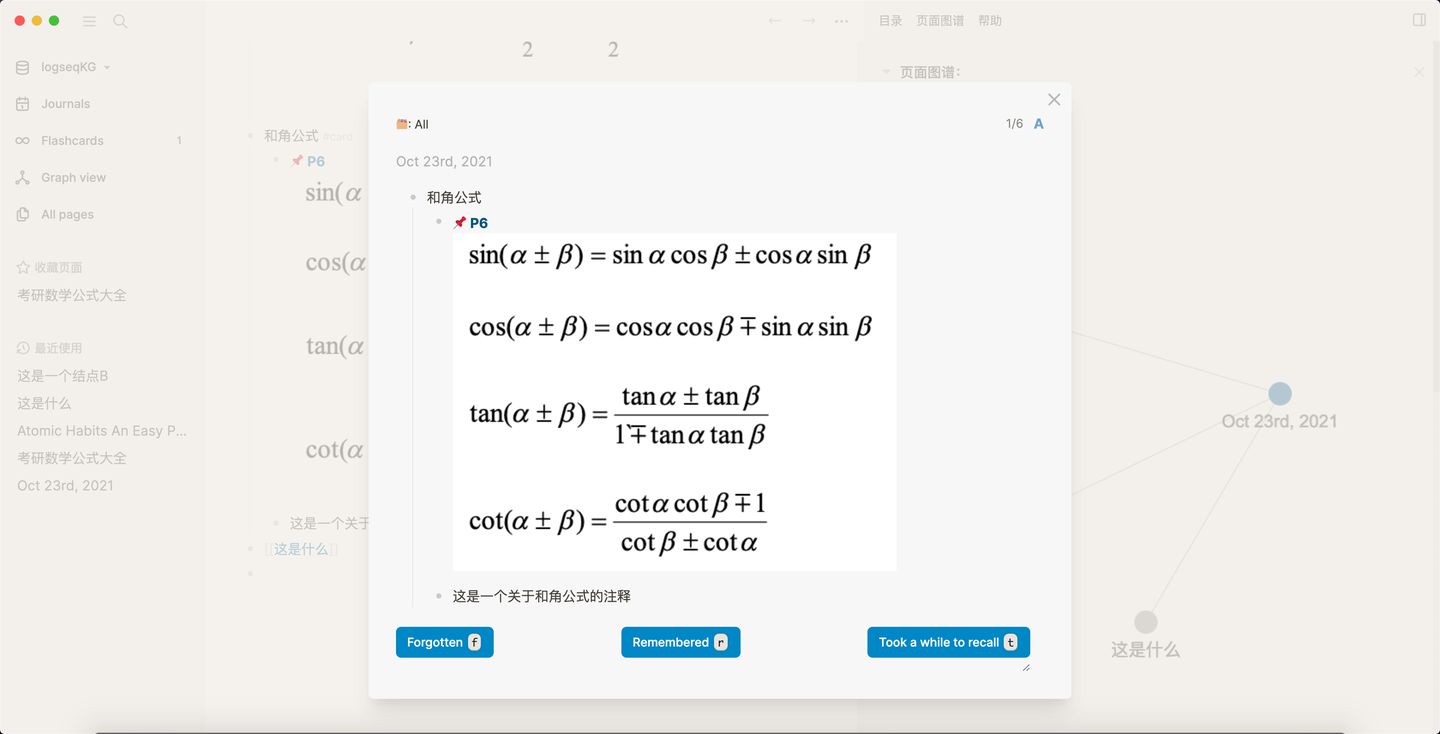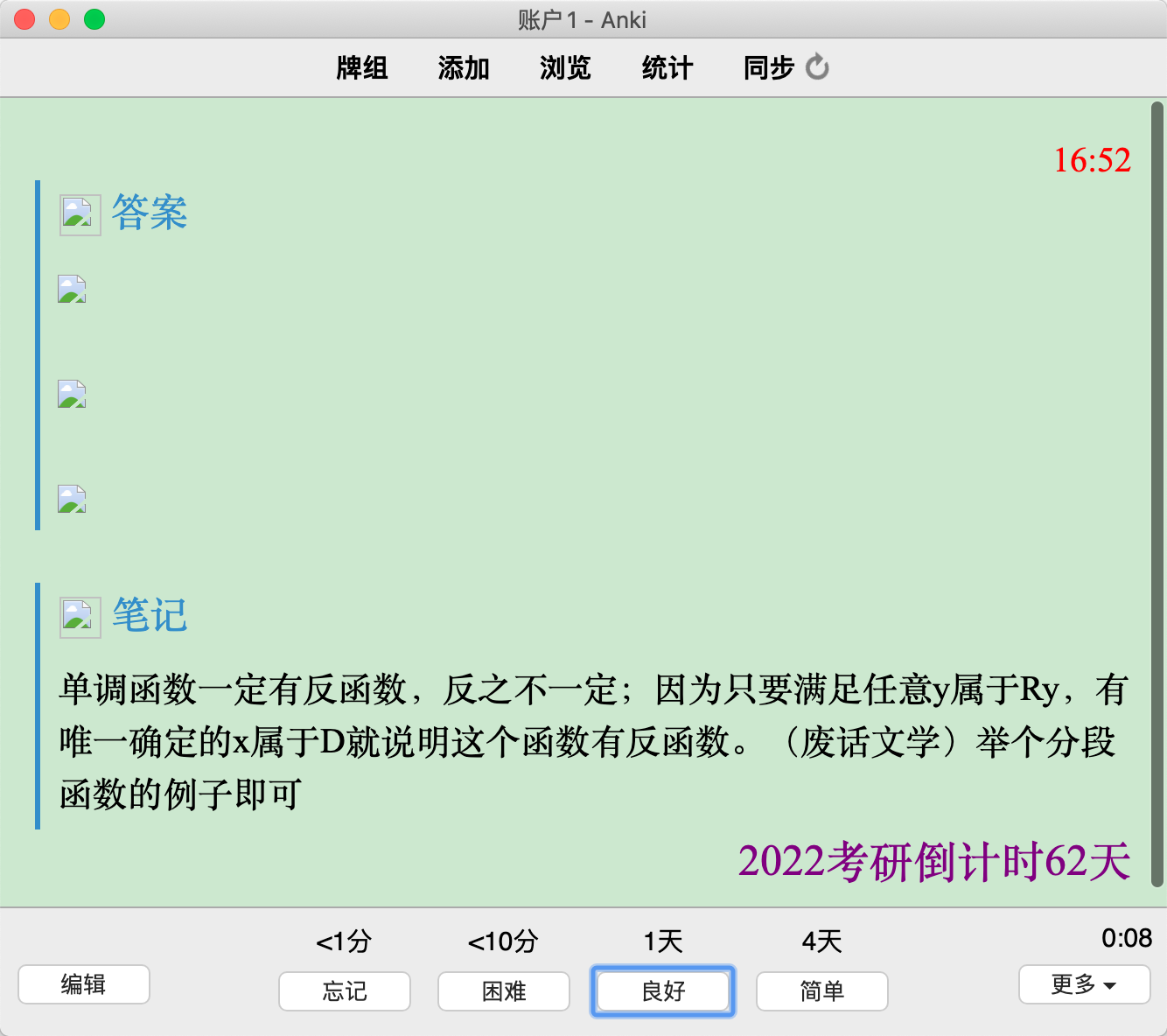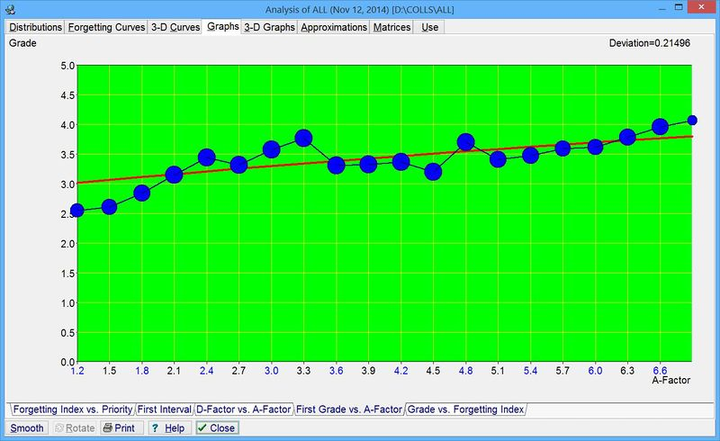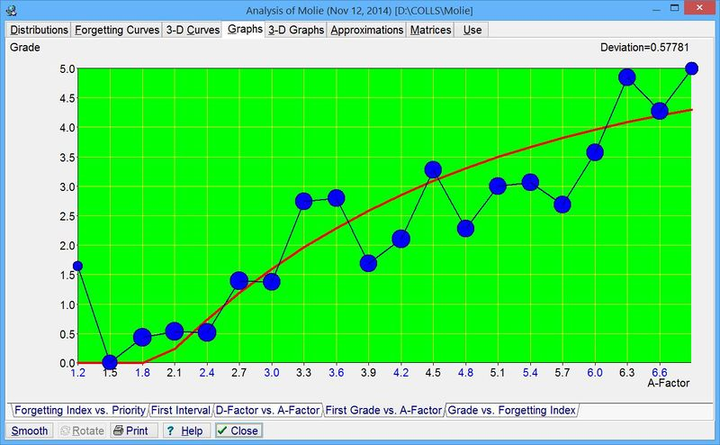问题描述
国内用的人不多 在Twitter问了官方说采用的是SM-5间隔重复算法,对于闪卡只有「Forgotten」、「Remember」和「Took a while to recall」三档

而不是像anki一样「忘记」「困难」「良好」「简单」四档选择

相较于anki,少了一档的logseq对内容记忆程度分级是否更笼统了?会因此影响记忆项的复习频率,最终影响记忆效果吗?
Logseq is a local-first, non-linear, outliner notebook for organizing and sharing your personal knowledge base.
Use it to organize your todo list, to write your journals, or to record your unique life.
https://github.com/logseq/logseq更新:「logseq 使用 SM-5 算法」这一信息的出处在评论区置顶
接下来是分析。
「记忆程度分级」这个档位的多少,SuperMemo for Windows 用的是 5 档,Anki 用的是 4 档,墨墨背单词用的是 3 档,这个问题挺有意思的。
从 SuperMemo 官方的文档中,正好间接研究过这个问题:
原文:First data-driven spaced repetition algorithm: Algorithm SM-8 - supermemo.guru


这两幅图描述了用户的评分与记忆材料难度之间的关系,分别取自两个 SuperMemo 用户的数据集。
对比两幅图,我们可以发现,图1中评分与难度的关系要弱于图2中的关系。根据官方的叙述:
Correlating the first grade with the estimated item difficulty was to help classify items by difficulty at the entry to the learning process. The correlation appears to be weak and is highly dependent on user's grading system. For some users, there is virtually no correlation (picture #1). For others, the correlation is good enough to cover the full range of difficulty (A-factor) (picture #2).
可以认为,这个相关性非常依赖于用户自己的打分标准,以及是否严格执行。
以下就是我个人的推测了。
我认为「记忆程度分级」这个档位的多少,只会影响非常认真给自己记忆评分的用户。对于普通用户而言,档位过多反而令人迷惑。
所以我认为,「相较于anki,少了一档的logseq对内容记忆程度分级是否更笼统了?会因此影响记忆项的复习频率,最终影响记忆效果吗?」这个问题的答案应该是:
是更笼统了,但影响较大的是比较认真打分的用户,对于普通用户而言其实没差多少。
